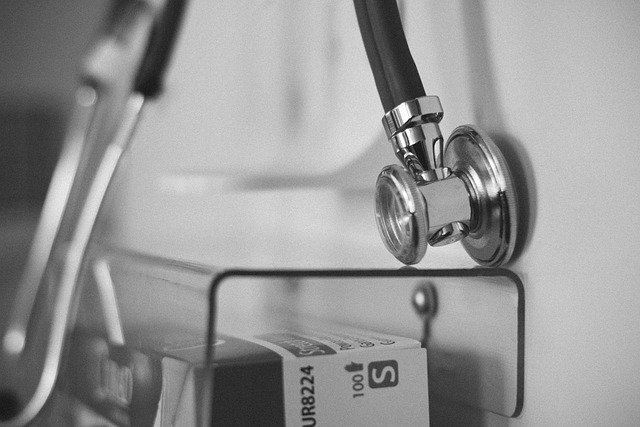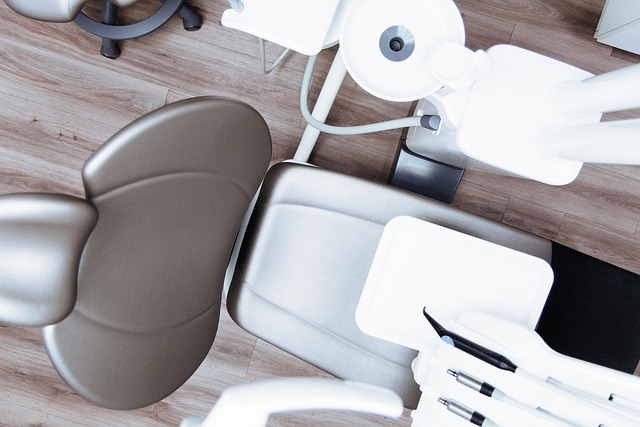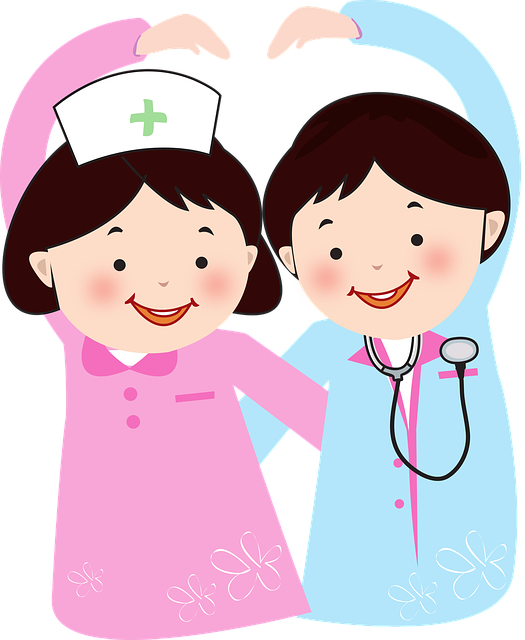Postpartum depression (PPD) is a prevalent mental health challenge for new mothers, requiring professional intervention. Depression treatment programs offer comprehensive support through various evidence-based therapies, including cognitive-behavioral therapy (CBT), interpersonal therapy (IPT), and medication-assisted treatment (MAT). These programs emphasize self-care practices like diet, exercise, mindfulness, and setting goals to boost emotional well-being. Support groups and community resources provide peer connection and access to specialized therapies. Alternative therapies like acupuncture, meditation, and yoga are gaining popularity for their holistic benefits. Building resilience through CBT, mindfulness, and social support is key to long-term PPD management and overall postpartum well-being.
Postpartum depression (PPD) is a common yet often overlooked mental health challenge facing new mothers. This comprehensive guide explores various aspects of PPD treatment, from understanding its causes and symptoms to exploring effective therapy options, medication management, and lifestyle interventions. Discover the power of support groups, community resources, alternative therapies, and long-term strategies for building resilience. If you or someone you know is struggling, these evidence-based approaches offer hope and a path to recovery through specialized depression treatment programs.
Understanding Postpartum Depression: Causes and Symptoms

Postpartum depression (PPD) is a complex condition that affects many new mothers, often beginning within four weeks after delivery and continuing for up to a year or longer. It’s more than just the “baby blues” that some women experience temporarily. Symptoms can include intense sadness, anxiety, exhaustion, difficulty sleeping or eating, feelings of guilt or inadequacy, and loss of interest in activities once enjoyed. These symptoms can interfere with daily functioning, making it challenging for mothers to care for themselves or their babies.
Several factors contribute to PPD, including biological changes after pregnancy (such as fluctuating hormone levels), psychological vulnerabilities, previous history of depression or anxiety, and environmental stressors like lack of support or financial worries. Recognizing the signs early is crucial. If you suspect PPD, seek help from a healthcare provider who can recommend evidence-based treatment programs, such as therapy, medication, or both, tailored to your needs. These depression treatment programs are designed to support new mothers in managing their symptoms and enjoying the postpartum period.
Seeking Professional Help: Therapy Options for New Mothers

Many new mothers struggle with postpartum depression, a serious mental health condition that requires professional attention. Seeking help is a sign of strength, and there are various therapeutic options available specifically tailored for this population. Depression treatment programs often incorporate individual therapy, where mothers can process their emotions in a safe space, learn coping strategies, and gain insights into their experiences. Group therapy sessions also prove beneficial, offering a sense of community and allowing mothers to connect with others facing similar challenges, fostering support and understanding.
Additionally, evidence-based therapeutic approaches like cognitive-behavioral therapy (CBT) have shown effectiveness in treating postpartum depression. CBT helps individuals identify and challenge negative thought patterns, replacing them with healthier alternatives. Interpersonal therapy (IPT) is another option, focusing on improving relationships and social connections, which can significantly impact mental health recovery. These professional support systems empower new mothers to navigate their emotional journeys, heal, and regain a sense of well-being.
Medication-Assisted Treatment: Antidepressants and Their Role

Medication-assisted treatment (MAT) is a widely recognized and effective approach for managing postpartum depression. Antidepressant medications play a pivotal role in this process, offering significant relief to many new mothers struggling with this condition. These pharmaceuticals are designed to balance brain chemicals that have become unbalanced due to the hormonal shifts occurring during pregnancy and childbirth.
Selective serotonin reuptake inhibitors (SSRIs) and serotonin-norepinephrine reuptake inhibitors (SNRIs) are commonly prescribed antidepressants for postpartum depression treatment programs. They work by increasing the levels of certain neurotransmitters in the brain, which can help stabilize mood and alleviate depressive symptoms. MAT is particularly beneficial when combined with psychotherapy or counseling, as it provides a comprehensive strategy to address the physical and emotional aspects of postpartum depression, ensuring better long-term outcomes for both mother and baby.
Lifestyle Interventions: Self-Care Strategies for Recovery

Postpartum depression (PPD) treatment programs often incorporate lifestyle interventions that emphasize self-care strategies for recovery. These include maintaining a balanced diet, engaging in regular physical activity, and prioritizing adequate sleep. Nutritious meals provide essential vitamins and minerals that support both mental and physical well-being, while exercise releases endorphins, which can boost mood and reduce stress. Adequate rest is crucial as fatigue exacerbates symptoms of PPD. Additionally, practices like mindfulness meditation, deep breathing exercises, and yoga can help manage anxiety and promote relaxation.
Self-care also involves setting realistic goals, practicing time management, and seeking support from family or friends. Connecting with others who understand the challenges of new motherhood can provide emotional relief and practical assistance. Journaling, keeping a gratitude list, or engaging in creative outlets like painting or music can serve as therapeutic diversions, fostering a sense of accomplishment and positive self-expression. These self-care strategies are integral components of depression treatment programs tailored for new mothers, aiming to restore balance and enhance overall mental health.
Support Groups and Community Resources for PPD Treatment

Support groups play a crucial role in the journey towards overcoming postpartum depression (PPD). These groups offer a safe and non-judgmental space for new mothers to connect, share their experiences, and gain understanding from peers who are going through similar challenges. Many communities have organized support groups facilitated by mental health professionals or trained volunteers, providing a structured environment for learning coping strategies and building a supportive network.
Community resources further enhance the availability of effective PPD treatment programs. Local organizations, hospitals, and clinics often offer counseling services, hotlines, and online forums dedicated to supporting mothers with postpartum depression. These resources can provide access to evidence-based therapies, such as cognitive-behavioral therapy (CBT) or interpersonal psychotherapy (IPT), tailored to individual needs. By combining support groups and community resources, new mothers can receive comprehensive care, fostering recovery and promoting long-term mental well-being.
Alternative Therapies: Exploring Holistic Approaches

Many women struggling with postpartum depression (PPD) are turning to alternative therapies as part of their depression treatment programs. Holistic approaches, such as acupuncture, meditation, and yoga, offer a gentle yet powerful way to manage symptoms and promote overall well-being. These practices focus on balancing the mind, body, and spirit—a crucial aspect often overlooked in traditional medical treatments.
Alternative therapies can be particularly effective for those seeking a more natural approach or looking for complementary methods alongside standard care. For instance, mindfulness meditation helps reduce stress and anxiety, while yoga promotes physical movement and mental clarity. Additionally, some studies suggest that acupuncture can alleviate PPD symptoms by regulating neurotransmitters and reducing hormonal imbalances. These options provide a sense of control and self-care, empowering new mothers to actively participate in their healing journey.
Building Resilience: Long-Term Strategies for Postpartum Wellbeing

Building resilience is a key aspect of long-term strategies for postpartum wellbeing. It involves developing coping mechanisms and strengths to better navigate life’s challenges, including hormonal shifts, sleep deprivation, and new parenting responsibilities. Engaging in depression treatment programs that incorporate cognitive-behavioural therapy (CBT), mindfulness practices, and social support networks can significantly enhance resilience. These evidence-based approaches help parents identify and challenge negative thought patterns, learn stress management techniques, and foster a sense of community.
Beyond professional support, fostering resilience includes prioritizing self-care activities such as regular exercise, maintaining a balanced diet, and carving out time for personal interests. Building strong connections with other parents or joining support groups can also provide a sense of belonging and reduce feelings of isolation. By adopting these holistic strategies, new parents can build mental fortitude to better manage postpartum mood disorders and cultivate lasting wellbeing.
